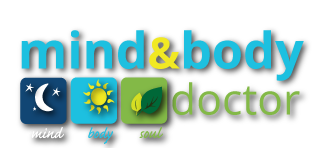Dyslexia is not a problem caused by poor vision. For most it is also not a disability where words jump around on the page. Dyslexia is a reading disability that occurs when children do not attain the language skills of reading, writing, and spelling as expected given their exposure through classroom instruction. Most people with dyslexia have normal intelligence, and many have above-average intelligence. The disorder is a specific information processing problem that is not connected with the ability to think or to understand complex ideas. According to The International Dyslexia Association, Dyslexia is defined as, “A specific learning disability that is neurobiological in origin. It is characterized by difficulties with accurate and/or fluent word recognition and by poor spelling and decoding abilities. These difficulties typically result from a deficit in the phonological component of language that is often unexpected in relation to other cognitive abilities and the provision of effective classroom instruction. Secondary consequences may include problems in reading comprehension and reduced reading experience that can impede growth of vocabulary and background knowledge.“
Children with Phonological Dyslexia may have trouble rhyming and separating the sounds in spoken words. These abilities appear to be critical in the process of learning to read. A child’s initial reading skills are based on word recognition, which involves being able to separate out the sounds in words and match them with letters and groups of letters. More developed reading skills require the linking of words into a coherent sentence. Because these children have difficulty connecting the sounds of language to the letters of words, they may have difficulty understanding sentences. Individuals can learn to identify letters and sounds and may even be identified as an early reader, yet later be diagnosed with Orthographic Dyslexia (Visual Dyslexia). These individuals tend to be easily overwhelmed with large amounts of text or smaller font, lose their place easily while reading, omit letters and words while reading, and spell words phonetically and therefore have difficulty learning irregular spelled words. These individuals often have weaker visual memory which also results in reading comprehension difficulties despite intact or advanced word reading ability.
SIGNS OF DYSLEXIA
- Delayed speech/langage
- Difficulty rhyming
- Difficulty learning letters and their sounds
- Difficulty organizing written and spoken language
- Reads word correctly on one page, but not on the next
- Understands phonics, but has difficulty sounding out and unfamiliar word
- Difficulty determining the meaning of a simple sentence
- Slow, inaccurate and labored reading
- Adds or leaves out letters in words (fight for flight)
- Difficulty learning to recognize written words
- Makes substitutions with similar words (paint for plant)
- Confuses order of letters in words
- Reads first letter of word and assumes remainder of word
- Has difficulty remembering spelling of words
- Does not pay attention to punctuation when reading aloud
- Has difficulty copying from board
- Listening comprehension is better than reading comprehension
- Difficulties in writing including spelling, punctuation and capitalization Not all students who have difficulties with these skills have dyslexia. Formal testing of reading, language, and writing skills is the only way to confirm a diagnosis of suspected dyslexia. Dyslexia may appear in combination with developmental writing disorder and developmental math disorder. All of these involve using symbols to convey information. These conditions may appear alone or in any combination. Since reading is progressive, it is extremely important to identify children who have dyslexia early. Research has shown that identification and intervention at 6-years-old results in significantly better outcomes than after 9-years-old. However, it is never too late to diagnose and help a child. On the contrary, unidentified learning disabilities and other disorders can result in low self-esteem, poor academic functioning across all areas, and emotional disorders.
Call today to discuss which services may be of help to you and/ or your child | 561-699-4639
I believe in a multi-disciplinary team approach and have spent years establishing relationships with other professionals and doctors in
the community who I highly respect and refer to as needed. In the event that I determine that you or your child will benefit from either an additional or alternative intervention, I will refer you to that professional I deem as best for your specific needs. I believe in treating all of my clients the same way I would want someone else to treat my own children and other family members.
